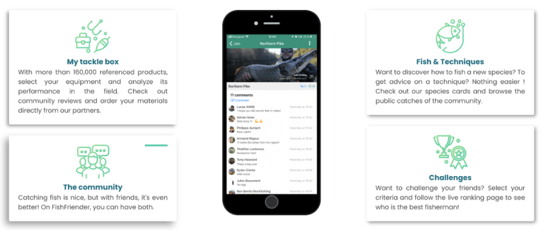nlopchantamang.com
"So I Heard You’re Working From Home"
Aja Frost @ajavuu
The signal: Said everyone, ever, everywhere. Millions of people across the world -- as of today, COVID has confirmed cases in 155 countries -- are working remotely. How can you tell? Queries like "how to install zoom" have skyrocketed.
The opportunity:
First-time WFHers
We are in the midst of the largest remote working experiment ever. Whenever this ends, some people will go back to the office. Some will not. Winners will be companies that create tools to support these remote workers (long-term opp) or help them acclimatize to the practice (short-term opp). Even thriving companies like ByteDance are honing in on collaboration tools.
Some people can’t WFH
Some people’s jobs are mission-critical (think doctors, nurses, and the crews that clean up after surgeries), while some companies are preventing people who can work from home from doing so. For now, these companies are being called out publicly. But there’s an opportunity to help those who can’t work from home to start doing so. Teladoc is the most obvious example, which has gone up ~50% in stock price since the beginning of the year. Other tools, like Software Donation, are aggregating free software offerings for small businesses that are impacted.
Some people won’t be working soon
The unfortunate reality is that many people will lose their jobs in the coming weeks and months. As that happens, people will likely need to look online for jobs that they can do from home. Imagine millions of blue-collar workers that don’t know how to code or understand the difference between UX/UI design. There is a huge opportunity to help these people find their footing.
Courses: If you have a skillset that enables you to work online, create a course helping people join you in the practice -- both how they can acquire that skill and how they might approach a job search for those positions. The ins and outs of the industry that you know well are indispensable to people just starting. And with platforms like Udemy, Teachable, or Jolt, it’s easier than ever. Or, help people find these courses. For example, this article highlighting 450 Ivy League courses that you can take for free was published in January, but it's referring domains shot up this week as people started practicing the #socialdistance.
Stream: If a course sounds like too much to you, stream. Stream your cooking session. Stream a yoga class. Stream yourself playing guitar. Or even stream how to break down a feature and write a requirements doc. The upside: you may find yourself with an audience and a business more quickly than you think. The downside: you did what you were going to do anyway, just on camera.
New businesses will be born out of virtual entertainment, because people need things to do. There will be more virtual sports (AKA esports). Virtual conferences. Virtual coffee (with someone cool from Twitter). Virtual getaways. Virtual drinks. Virtual workouts. Or some good ‘ol isolation bonding. We’re still waiting for a virtual festival.
Rethink the model: The way the workforce works today may not be true in a year. Some think that the quarantine will normalize WFH, while a recession may denormalize full-time jobs. More on this next week (Hint: ). As full-time jobs become part-time, and part-time jobs become contract, and all of the above go more remote, companies and individuals will be looking for ways to "go remote" more effectively. That’s why companies like Deel, which make a boring pain-point like compliance, so incredibly easy.
We’ve said it (more than) once and we’ll say it again: we love job boards. While openings will be sparse in coming months, they will exist and people need someone to tie the gap between limited supply and overwhelming demand. Highlight new jobs like "corona coordinators" that emerge from the crisis at hand and what people can do to get involved.


Leave a Comment